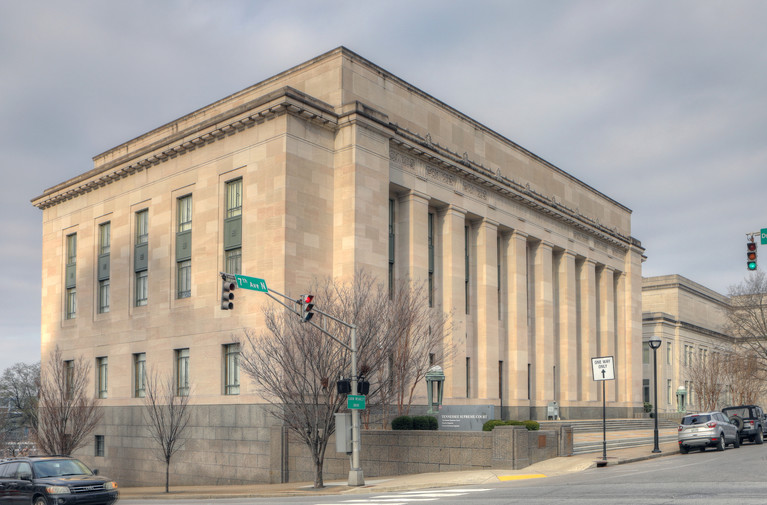In a move that could reshape legal education across the U.S., Tennessee’s highest court is challenging the American Bar Association’s longstanding monopoly on accrediting law schools. With Tennessee Supreme Court ABA accreditation, ABA law school accreditation challenge, Tennessee lawyer licensing reform, non-ABA law schools Tennessee, and ABA diversity standard criticism dominating discussions, this inquiry signals a potential shift toward more state control over bar admissions.
The Court’s Call for Reform: Seeking Public Input on Accreditation Alternatives
The Tennessee Supreme Court issued an administrative order on September 16, 2025, inviting public comments on potential regulatory changes to increase access to quality legal representation. Central to the inquiry: whether to modify, reduce, or eliminate reliance on ABA accreditation for bar eligibility.
Comments are due by December 1, 2025, and will inform possible rule amendments. The court also seeks feedback on alternative bar pathways, non-lawyer firm ownership, and fee-sharing rules.
This isn’t Tennessee’s first foray into alternatives. Since 2001, the state has approved non-ABA schools like Nashville School of Law, allowing their graduates to sit for the bar if they meet rigorous standards. Out-of-state non-ABA grads have qualified since 2016.
Roots of the Challenge: DEI Backlash and Post-SFFA Ripples
The scrutiny stems from conservative critiques of the ABA, intensified by the U.S. Supreme Court’s 2023 Students for Fair Admissions v. Harvard decision banning race-based admissions. ABA Standard 206, promoting diversity in faculty and students, faced accusations of violating equal protection.
In November 2024, Tennessee Attorney General Jonathan Skrmetti joined 21 Republican AGs in demanding revisions to Standard 206. The ABA paused enforcement and proposed changes, but critics deemed them inadequate.
Tennessee’s review addresses “unmet legal needs” in rural areas, where over 40 counties lack full-time lawyers. Reforms could flood these markets with more attorneys through non-ABA paths or relaxed ownership rules, similar to Arizona’s models.
A Growing National Trend: Florida, Texas, and Ohio Follow Suit
Tennessee joins a red-state rebellion. Florida’s Supreme Court formed a workgroup in March 2025 to explore ABA alternatives, citing the group’s “political engagement.”
Texas Chief Justice Nathan Hecht blasted ABA “woke” mandates in April 2025, soliciting state-specific accreditation options. Ohio echoes the probe, potentially creating a patchwork of standards.
The Association of American Law Schools defended national accreditation in an open letter, arguing it ensures consistency. Currently, 33 non-ABA law schools operate, mostly in California, proving viability.
Expert Opinions and Public Reactions: Split on Standards vs. Access
ABA Managing Director Jenn Rosato Perea welcomed the review, pledging to demonstrate accreditation’s value. “We look forward to showing how our standards benefit graduates and the public,” she said.
Critics like the Federalist Society align with the AGs’ push, viewing it as post-SFFA compliance. On X, law professor Derek T. Muller noted Tennessee’s history with non-ABA schools, suggesting minimal disruption.
Public sentiment on social media splits: Supporters hail “breaking the ABA monopoly,” while educators fear quality erosion. One X user quipped, “Tennessee’s setup works—why not expand?”
Why This Matters to Americans: Cheaper Law Degrees, Rural Justice Gaps
For U.S. readers, this could slash law school costs. Non-ABA programs like Nashville charge under $20,000 total versus $200,000+ at ABA schools, easing student debt burdens in a $423 billion legal economy.
Lifestyle benefits include more lawyers in underserved rural areas, speeding up family law or contract help for farmers and small businesses.
Politically, it’s a red-state pushback against perceived liberal bias, influencing midterms on education reform. Technologically, online non-ABA programs could boom, boosting edtech firms. Even in sports law, more affordable attorneys might aid NIL deals for college athletes.
A Potential Pivot: Reshaping Legal Education Nationwide
Tennessee’s Supreme Court questioning the ABA’s accreditation role could democratize legal access, prioritizing state needs over national mandates. As comments pour in by December, expect a hybrid model blending quality with flexibility. With Tennessee Supreme Court ABA accreditation, ABA law school accreditation challenge, Tennessee lawyer licensing reform, non-ABA law schools Tennessee, and ABA diversity standard criticism at the forefront, this inquiry may inspire more states, fostering innovation while guarding standards in America’s evolving bar.
Tennessee Supreme Court ABA accreditation, ABA law school accreditation challenge, Tennessee lawyer licensing reform, non-ABA law schools Tennessee, ABA diversity standard criticism, state bar admissions changes, legal education reform 2025, rural legal access Tennessee, SFFA impact law schools, Tennessee non-ABA approval
